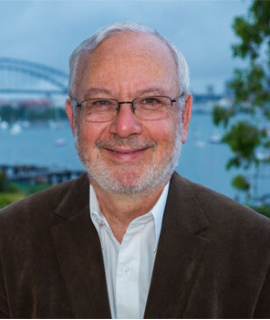Abstract:
All too often patients, known to have epilepsy, attend the Accident and Emergency Department (A&ED) following an epileptic seizure and, before a proper history or examination has occurred, the patient is loaded with an antiseizure medication (ASM), other than that which they had already been prescribed and which they were theoretically taking. By far the most common reason for a person, known to have epilepsy, to present to the A&ED is a failure of compliance or exposure to a provocative aetiology, such as an infection or metabolic derangement. In either case, it is inappropriate to confound the picture by adding yet another ASM, rather than addressing the root cause. If the patient is still seizing, at the time of presentation, it is imperative to stop the epileptic activity and to use benzodiazepines, such as midazolam, which are definitely indicated but these have a short half life and there is need to also administer a longer acting ASM. By far the best ASM, to adopt at this time, is the one that the patient is already prescribed but, to ensure a better understanding of that which is occurring, blood samples should be taken, before it is administered, to confirm the lapse in compliance, prior to administering the prescribed ASM. Samples should also be taken to look for a source of infection or metabolic disturbance. As the patient is already in a medical facility there is little concern if the patient should be temporarily over treated, with his/her ‘existing’ ASM, as this will be short lived and managed under supervision. The aim is to establish that the therapeutic level of ASM has been achieved and, if it is low in the therapeutic range, the therapist can accept a higher level, towards or just beyond the top of the therapeutic window, especially for an ASM with a narrow therapeutic index. This provides a level of precision pharmacotherapy, when treating patients with epilepsy, without confounding the picture with potential medication interactions or potential compounded unwanted effects. Involve a specialist in epilepsy as soon as is possible and preferably before administering the longer acting ASM.
Biography:
Roy G. Beran is trained as a consultant neurologist and accredited sleep physician, in addition to working within legal medicine, military medicine and aviation medicine. His qualifications include: MBBS, MD, FRACP, FRACGP, Grad. Dip. Tertiary Ed., Grad. Dip. Further Ed., FAFPHM, FACLM, FRCP, FAAN, FACBS, B Leg. S, MHL and FFFLM (Hon). He is registered with the Australian Health Practitioner Regulation Agency (AHPRA) as a specialist in Neurology, Public Health and Sleep Medicine and has been a Designated Medical Examiner for the Civil Aviation Safety Authority. He has also been a medical assessor for Dispute Resolution for the State Insurance Regulatory Authority and an assessor for the Workers Compensation Commission of New South Wales (NSW). He is a Conjoint Professor of Medicine at the University of NSW; Professor in the School of Medicine at Griffith University, Queensland; and Professor, Chair, Medical Law, Sechenov Moscow 1st State University, Moscow, Russia. He was the inaugural Visiting Professor at the International Research Institute of Health Law Sciences, at the Southern Medical University, Guangzhou, Guangdong Province, China.
He is a founding Fellow of the Australasian College of Legal Medicine; a Past President of the College, having stepped down in 2011, while remaining on Council, and was awarded the second ever Honorary Life Fellowship of the College. In 2019 he was appointed as ‘Co-Head of Faculty’ to convene and co-ordinate the College’s training courses throughout Australia. He is the Australian Governor and was the Secretary General and remains a Vice President of the World Association for Medical Law (WAML), having served on the Organising Committee of numerous World Congresses on Medical Law, presided over the World Congress, in Sydney, in 2004, and successfully bid to host the World Congress to be held on the Gold Coast, Queensland, in 2022. He was the first Honorary Fellow of the Faculty of Forensic & Legal Medicine of the Royal College of Physicians (London).
In Neurology, he is a Fellow of the Royal Australasian College of Physicians; a Fellow of the Royal College of Physicians, Edinburgh; Corresponding Fellow of the American Academy of Neurologists; and a Member of the Australian and New Zealand Association of Neurologists. He is a Member of the Australasian Sleep Association, serving on various committees thereof. He pioneered the conduct of clinical trials and undertaking research within private practice, having been principal author in publications which included leading academic/tertiary referral institutions. He has published in the order of 360 papers, book chapters and letters to the editor, presented in excess of 400 papers at national and international meetings and written or edited 17 books, including ‘Legal and Forensic Medicine’, published by Springer, and is a co-editor of, ‘Legal Liability in Asia and Australasia’, in conjunction with Prof Raposo, from Macau University, also with Springer. He is on numerous editorial boards, including being the editor-in-chief of the international journal, Medicine and Law, for the WAML.
He was an officer in the Royal Australian Navy Reserve (holding the rank of Commander) and was awarded membership of the general division of the Order of Australia, in 2015.


